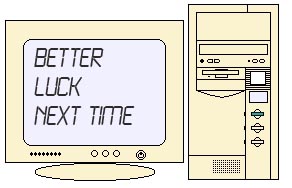 It would be an embarrassing surprise if you woke up one day to find that your personal website was now a dating service, or worse, selling porn or prescription drugs. Well that’s precisely what has happened to two Canadian MPs, and it highlights the importance of preemptively guarding your online identity in a situation where legal recourse will prove difficult if not futile.
It would be an embarrassing surprise if you woke up one day to find that your personal website was now a dating service, or worse, selling porn or prescription drugs. Well that’s precisely what has happened to two Canadian MPs, and it highlights the importance of preemptively guarding your online identity in a situation where legal recourse will prove difficult if not futile.
As reported by the blogs Michael Geist and Canadian Trademark Blog, and now even The Sun, the domain names of two MPs have been snatched up by cybersquatters after the politicians failed to re-register them. Liberal whip Rodger Cuzner, Member of Parliament for Cape Breton-Canso, had his domain www.rodgercuzner.ca taken over by a bizarre dating-based entity. And at www.keithashfield.ca – former web home of Keith Ashfield, Conservative MP for Fredericton – one can order drugs such as the highly addictive oxycontin.
Cybersquatting, also known as domain squatting, refers to “bad faith registration of a domain name containing another person’s brand or trademark in a domain name.” Benefits for the cybersquatter come in the form of per-click revenue from ads on the repossessed site. Since 25% of all Internet traffic comes from direct navigation – i.e. people directly typing the domain name into the browser – cybersquatting can seriously damage the business and/or reputation of companies and individuals.
So what do you do when someone snags your domain? In Canada, notes Canadian Trademark Blog, one possible recourse is to try to take the name back through the Canadian Internet Registration Authority Dispute Resolution Policy. The problem for Mr. Ashfield and Mr. Cuzner, however, is that the complainant in this case must prove that his/her name qualifies as a “Mark,” and the definitions of “Mark” generally pertain to businesses and institutions, not individuals.
Another avenue of action is to go to the Uniform Domain Name Resolution Policy (UDRP) process administered by the Internet Corporation for Assigned Names and Numbers (ICANN), the nonprofit organization that oversees domain name registration. This process is cheaper than legal action against the cybersquatter, but unlike legal action it cannot grant recovery of damages to the complainant. And there is the chance that the domain name in question will not be within the category of UDRP-affected top-level domain names (such as .com, .org, and some country codes).
The obvious solution to cybersquatting is to not let it happen in the first place. The plight of Mr. Ashfield and Mr. Cuzner is a reminder to regularly re-register your domain name before it’s seized by Cialis-peddling opportunists.

cybersquatters , stole my daughters .com name. She is a minor (13 years old) and is the only one in the world with this name. This is a violation of her identity. I think this should be illegal .